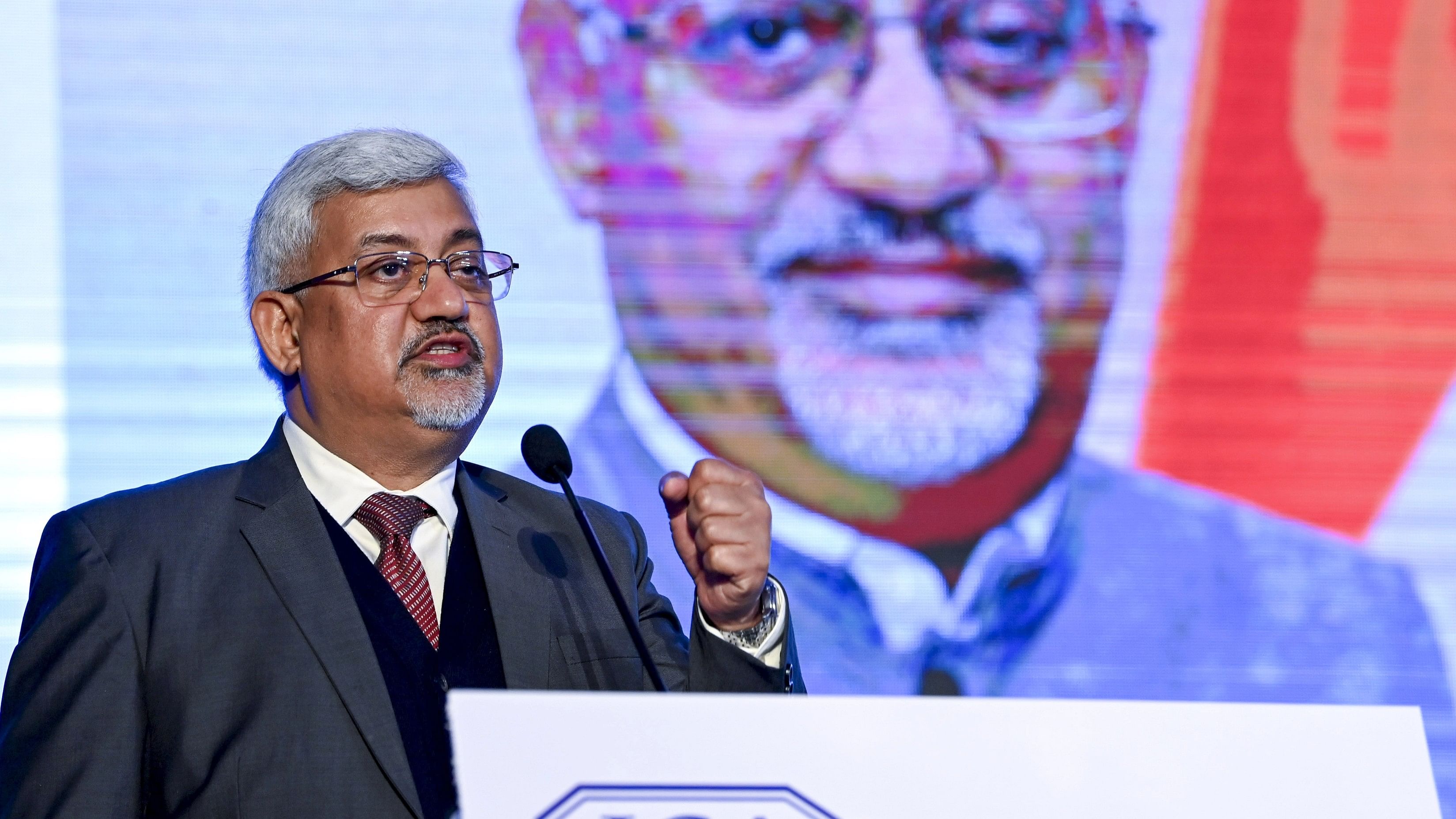
India's Trade Secretary Sunil Barthwal
Credit: PTI Photo
New Delhi: Commerce Secretary Sunil Barthwal held bilateral meetings with Russian and UAE ministers to discuss bilateral trade issues for their early resolution, an official said on Sunday.
Barthwal held these meetings on the sidelines of the 14th BRICS (Brazil, Russia, India, China and South Africa) Trade Ministers’ meeting in Moscow on July 26.
The secretary held bilateral meetings with the Russian Minister for Economic Development Maxim Reshetnikov; Member of the Board (Minister) of Trade, Eurasian Economic Commission Andrey Slepnev; Russia’s Deputy Minister of Industry and Trade Alexey Gruzdev; Head of FSVPS (Federal Service for Veterinary and Phytosanitary Supervision) Sergei Dankvert of the Russian Federation.
He also met South Africa’s Deputy Minister for the Department of Trade, Industry and Competition Zuko Godlimpi, and UAE’s Minister of State for Foreign Trade Thani Bin Ahmed Al Zeyoudi.
In these meetings “bilateral trade issues were discussed in brief for their early resolution,” the commerce ministry said.
The meetings with Russia hold significance as both countries looks to increase the bilateral trade to USD 100 billion by 2030.
India is focussing on various sectors like electronics, besides taking up issues of non-trade barriers in areas like shrimp and pharma, to boost exports to sanction-hit Russia and move towards achieving this target.
At present, the bilateral trade stands at about USD 67 billion.
India and Members of the Russian-led Eurasian Economic Union (EEU) are also exploring an opportunity to start talks for a free trade agreement.
The Eurasian Economic Union comprises Armenia, Belarus, Kazakhstan, Kyrgyzstan and Russia.
Since the Ukraine war began in February 2022 and the US imposed sanctions on Russia, the trade relationship between India and Russia has shifted significantly.
There has been a sharp increase in imports from Russia, resulting in a notable trade imbalance.
Exports during the financial year 2020-21 and 2023-24 grew by 59 per cent, while imports surged by about 8,300 per cent, the report said, adding the trade deficit rose from USD 2.8 billion before the war in 2020-21 to USD 57.2 billion at present, think tank GTRI in its report has said.
The import surge is solely due to India's strategic procurement of crude oil from Russia influenced by favourable trade terms and Russia's need to find new markets amidst Western sanctions.
In 2023-24, India's exports to Russia were USD 4.3 billion, while imports driven by crude oil stood at USD 61.4 billion. Share of crude oil and petroleum products in imports was 88 per cent.
India exports a diverse range of products to Russia including smartphones, shrimp, medicine, meat, tiles, coffee, parts of airplanes and helicopters, chemicals, computers, and fruits.
In the BRICS trade miniseries meeting, Barthwal called for strengthening the multilateral trading system with WTO (World Trade Organisation) at its core, effective functioning of joint value chains, and expanding interaction among MSMEs.
BRICS is a grouping of major emerging economies of the world, comprising over 40 per cent of the world population and accounting for over 16 per cent of global trade.
On strengthening multilateralism, the secretary reiterated the collective efforts to find a solution for long pending mandated issues of WTO, in particular, the development aspect and the Special and Differential treatment.
This treatment gives special rights to developing nations.
He stressed the urgent need for resolving the issues including the permanent solution to Public Stock Holding and the constitution of a two-tier Dispute Settlement system.
He highlighted that WTO reforms need to be based on the principles and objectives of WTO, leading to more responsive to development requirements of emerging economies, invigorating the WTO through ’30 for 30’ bringing in at least 30 operational improvements to the WTO before the organization completes 30 years in 2025.
He also stated that collaboration will be key for making access to affordable emerging technologies critical for green transition and climate resilience.
On the climate-related unilateral measures impacting trade, the Commerce Secretary expressed concern as such measures nullify rights and obligations under specialized multilateral environmental agreements and violative NDC (nationally determined contributions) principles, and ignore the CBDR (common but differentiated responsibilities) principles.
For MSMEs, Barthwal said that there is a need to focus on key areas like exploring cooperation in the form of Research and Development, Technology transfers and joint Ventures as well as business development opportunities.
He added that India is willing to share its experience with the BRICS countries on the e-revolution in the domains of payments, e-commerce, national identity, banking, and education.